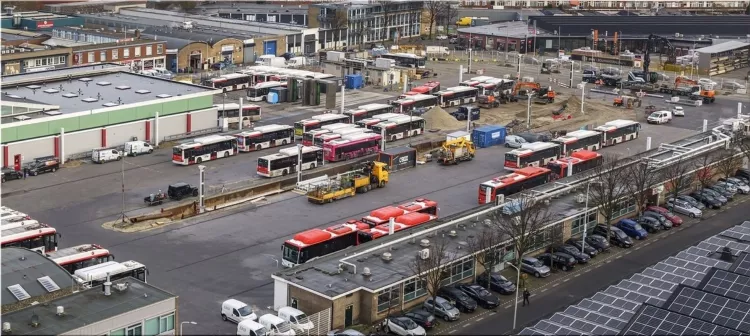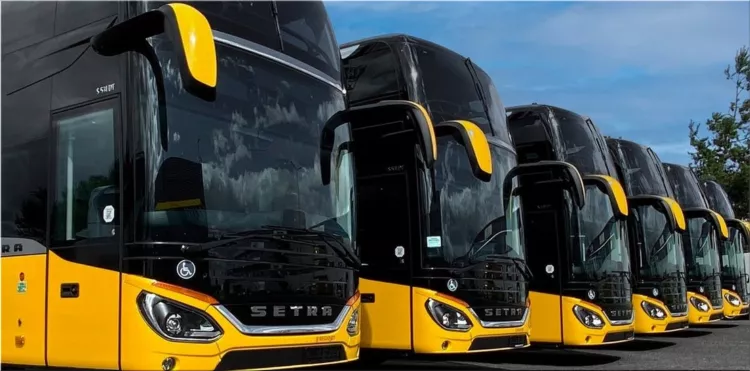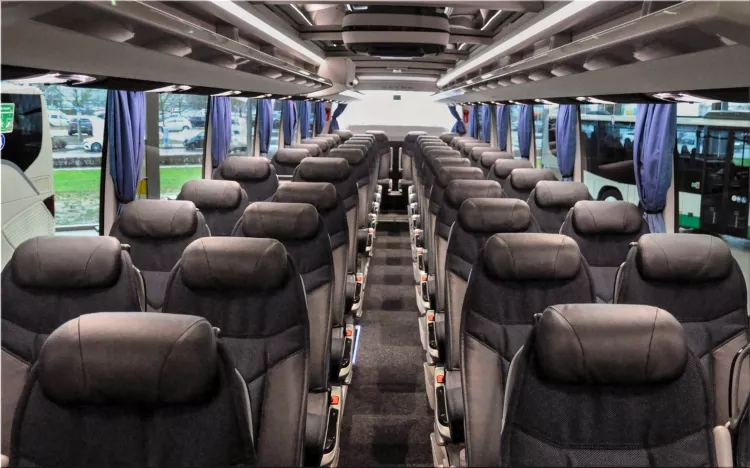The Hague, the Dutch government's seat and the Netherlands' third-largest city is on a mission to become more sustainable and reduce its carbon footprint. One of the ways it is doing that is by electrifying its public transport system with the help of Daimler Buses, a subsidiary of the German automotive giant Daimler AG.
Daimler Buses delivers 21 eCitaro buses to The Hague
In March 2021, Daimler Buses delivered 21 eCitaro buses to The Hague’s public transport operator, HTM Personenvervoer N.V. (HTM). The eCitaro is a fully electric bus that can carry up to 88 passengers and has a range of up to 170 kilometers (105 miles) on a single charge. The eCitaro buses are equipped with lithium-ion batteries that can be recharged at the depot or at fast-charging stations along the routes.
The eCitaro buses are part of a larger order of 114 electric buses that HTM placed with Daimler Buses in 2019. The order also includes 93 eCitaro G buses, which are articulated versions of the eCitaro with a capacity of up to 146 passengers and a range of up to 220 kilometers (136 miles). The eCitaro G buses are expected to be delivered by the end of 2021.
The Hague aims to have a zero-emission bus fleet by 2030
The Hague is one of the first cities in the Netherlands to adopt electric buses on a large scale. The city has set a goal to have a zero-emission bus fleet by 2030, as part of its broader ambition to become carbon-neutral by 2040. The city also plans to invest in other forms of green mobility, such as electric cars, bikes, and scooters.
According to HTM, the electric buses will not only reduce greenhouse gas emissions but also improve air quality, noise levels, and passenger comfort. The electric buses are also more cost-efficient and reliable than diesel buses, as they have lower maintenance and fuel costs.
Daimler Buses is a leader in the electric bus market
Daimler Buses is one of the world’s leading manufacturers of buses and coaches, with a market share of about 17% in 2020. The company has been developing and producing electric buses since 2018 and has sold more than 400 eCitaro buses to date. The company offers a range of electric bus models, such as the Mercedes-Benz eCitaro, the eCitaro G, the eCitaro U, and the eCitaro S, which cater to different customer needs and preferences.
Daimler Buses is also working on innovative technologies to enhance the performance and efficiency of its electric buses, such as:
- Solid-state batteries: These are batteries that use solid materials instead of liquid electrolytes, which can increase the energy density, safety, and lifespan of the batteries. Daimler Buses plans to introduce solid-state batteries for its eCitaro buses in 2022.
- Hydrogen fuel cells: These are devices that convert hydrogen and oxygen into electricity and water, which can extend the range and flexibility of the electric buses. Daimler Buses plans to launch a fuel cell version of the eCitaro G bus in 2022, which will have a range of up to 400 kilometers (248 miles).
- Digital services: These are software solutions that help optimize the operation and management of the electric buses, such as eMobility Consulting, which helps customers plan and implement their electrification strategy, and OMNIplus ON, which provides remote diagnostics, predictive maintenance, and driver training.
Electric buses are the future of urban mobility
Electric buses are becoming more prevalent in cities worldwide, as they offer multiple benefits for the environment, the economy, and society. According to a report by BloombergNEF, the global electric bus fleet is expected to grow from about 600,000 units in 2019 to over 1.5 million units in 2025, accounting for about 67% of the total bus fleet. The report also estimates that electric buses will save about 270,000 barrels of diesel per day by 2025, equivalent to the annual oil consumption of Greece.
Some of the leading markets for electric buses are China, Europe, and North America. China is the largest and fastest-growing market, with over 500,000 electric buses in operation as of 2019, representing about 99% of the global electric bus fleet. Europe is the second-largest market, with over 4,000 electric buses in operation as of 2019 and a target of 40,000 electric buses by 2030. North America is the third-largest market, with more than 2,000 electric buses in operation as of 2019 and a potential of 12,000 electric buses by 2025.
Some of the key drivers for the adoption of electric buses are:
- Policy support: Many governments and authorities are providing incentives, subsidies, and regulations to encourage the deployment of electric buses, such as the Clean Bus Declaration in Europe, the Low and No Emission Vehicle Program in the US, and the New Energy Vehicle Policy in China.
- Cost reduction: The upfront and operational costs of electric buses are declining due to the falling prices of batteries, charging infrastructure, and electricity. According to BloombergNEF, the total cost of ownership of electric buses will reach parity with diesel buses by 2025 in most markets.
- Customer demand: Many public transport operators and passengers are demanding cleaner, quieter, and more comfortable buses, which can enhance the attractiveness and competitiveness of public transport. According to a survey by McKinsey, 60% of public transport users in Europe would prefer electric buses over diesel buses.
Conclusion
The Hague is a prime example of how electric buses can transform urban mobility and sustainability. By partnering with Daimler Buses, the city is taking a bold step towards achieving its zero-emission and carbon-neutral goals while also improving the quality of life and service for its citizens and visitors. Daimler Buses is a leader in the electric bus market, offering a variety of models and technologies to meet its customers' diverse needs and expectations. Electric buses are the future of urban mobility, as they offer multiple benefits for the environment, the economy, and the society.
Mercedes-Benz eCitaro proves itself in daily use in Germany. After the first deliveries of the Mercedes-Benz eCitaro to the German cities of Hamburg and Heidelberg, first orders are now also… Continue reading
The first major order for electric buses has been delivered to the Hamburger Hochbahn after about one year. The new fleet is already in service. Just over a year ago, Hamburger Hochbahn presented its first fully electric bus to the public -… Continue reading
Mercedes-Benz eCitaro fuel cell is a hybrid electric bus that uses hydrogen as a source of energy. It has been awarded the titles of “Bus of the Year” and… Continue reading
In Madrid, the municipal transport company EMT inaugurated the first "Línea Cero" between Atocha Renfe and Moncloa, which is operated exclusively by electric buses and can also be used free of charge. This first "zero emissions, zero… Continue reading











